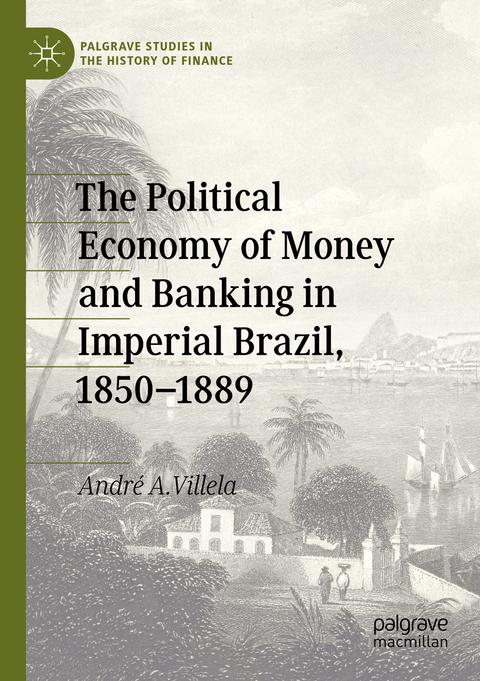
The Political Economy of Money and Banking in Imperial Brazil, 1850–1889
Springer International Publishing (Verlag)
978-3-030-32776-7 (ISBN)
This book uncovers the extent to which government policy in mid nineteenth-century Brazil followed the interests of the all-powerful coffee growing class. The testing ground for this question is monetary and banking policy, an area in which exporters and the Brazilian government were often at loggerheads. The development of the monetary and banking regime during the second half of the Brazilian Empire (1850-89) is examined in a chronological and thematic way. The book establishes two major points of historical fact: the peculiar nature of the monetary standard adopted in Brazil during part of the period, as well as the role of the Bank of Brazil therein. Additionally, the analysis broadens current knowledge of three of the major contemporary events in the financial sphere - the 1860 banking and corporate law, the Souto crisis of 1864 and the 1875 financial crisis that brought down Mauá's business empire. This book will be of interest to academics, both as secondary literature for their own research and as material that could be used in class at the advanced undergraduate or graduate levels. It will appeal to those interested not only in Brazilian economic and financial history, but also to students of political economy in general.
lt;p>
André A. Villela has been a Lecturer at the Brazilian School of Economics and Finance / Getulio Vargas Foundation (FGV EPGE), Brazil, since 2002, teaching and researching the economic history of Brazil. From 2012 André has acted as head of the undergraduate program in Economics at FGV EPGE. He has published his work in academic journals, as well as contributed chapters to volumes on Brazilian economic history. Co-author of Economia Brasileira Contemporânea: 1945-2015, André received his BA and MSc in Economics in Brazil and his PhD in Economic History from the London School of Economics, UK.
Chapter 1. Introduction.- Chapter 2. From Plurality of Issue to Monopoly and Back: 1850-60.- Chapter 3. From the "Law of Impediments" to Restoration of Monopoly: 1860-66.- Chapter 4. The Treasury as a Monopolist Note Issuer: 1866-89.- Chapter 5. Taking Stock: Monetary and Banking Policy in the Second Reign.- Chapter 6. Conclusions.
| Erscheinungsdatum | 05.02.2021 |
|---|---|
| Reihe/Serie | Palgrave Studies in the History of Finance |
| Zusatzinfo | XXIV, 212 p. 6 illus. |
| Verlagsort | Cham |
| Sprache | englisch |
| Maße | 148 x 210 mm |
| Gewicht | 313 g |
| Themenwelt | Geisteswissenschaften ► Geschichte ► Regional- / Ländergeschichte |
| Wirtschaft ► Allgemeines / Lexika | |
| Wirtschaft ► Betriebswirtschaft / Management ► Finanzierung | |
| Wirtschaft ► Volkswirtschaftslehre | |
| Schlagworte | 19th-century Brazilian economic history • Banking • Banking policy • Bank of Brazil • Brazilian empire • Economic History • Exchange Rate Regimes • government policy • monetary policy • Political Economy |
| ISBN-10 | 3-030-32776-0 / 3030327760 |
| ISBN-13 | 978-3-030-32776-7 / 9783030327767 |
| Zustand | Neuware |
| Informationen gemäß Produktsicherheitsverordnung (GPSR) | |
| Haben Sie eine Frage zum Produkt? |
aus dem Bereich


